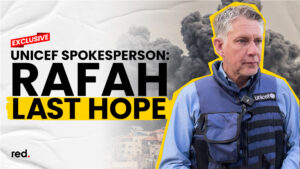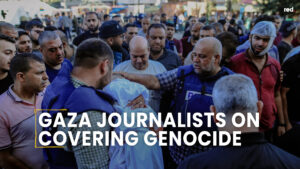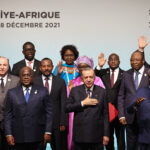For the anniversary of NATO’s invasion of Libya, we interviewed Muammar Gaddafi’s former spokesman, Moussa Ibrahim.
NATO’s invasion of this African Union member state was justified on the pretext of “protecting civilians”, a claim for which no credible evidence was ever presented. The real goal would become clear during the war and the years that followed: regime change, to overthrow the government led by Muammar Gaddafi for its role in spearheading pan-African integration and liberation.
France in particular, which maintains its neocolonial grip on Africa particularly through the CFA Franc currency, was especially eager to crush Gaddafi’s moves to launch a pan-African currency, the Golden Dinar, backed by Libya’s huge gold reserves. This fact has since been confirmed by a 2016 British Parliament investigation and in the same year, Wikileaks disclosing emails of then U.S. Secretary of State, Hillary Clinton, in which she wrote that the Golden Dinar was “one of the factors that influenced President Nicolas Sarkozy’s decision to commit France to the attack on Libya”.
During seven months, NATO brought Libya, a country which previously boasted the highest level of human development in Africa, to its knees. In this interview, Ibrahim explains the crimes NATO committed during the war, what Libya was like before it, Libya’s efforts to lead African liberation from Western neocolonialism, and how it paid the ultimate price for challenging the West. Ibrahim condemns the mainstream media for pumping out misinformation about the Libyan government during the war and behaving like “servants” to their governments in the West.
He estimates that the civilian death-toll from NATO’s attacks in those months alone, to be as high as 30,000, deaths which Western journalists on the ground ignored before their own eyes. 12 years on, despite repeated appeals, here still has been no international investigation into the civilian cost of NATO’s war on Libya. Ibrahim also discusses the prospects for Gaddafi’s son, Saif al-Islam, to be Libya’s next leader, saying: “Saif al-Islam represents most of the Libyan nation and has a project for Libya, a project of reconciliation, of national dialogue, of democracy, of development and of independence.”




